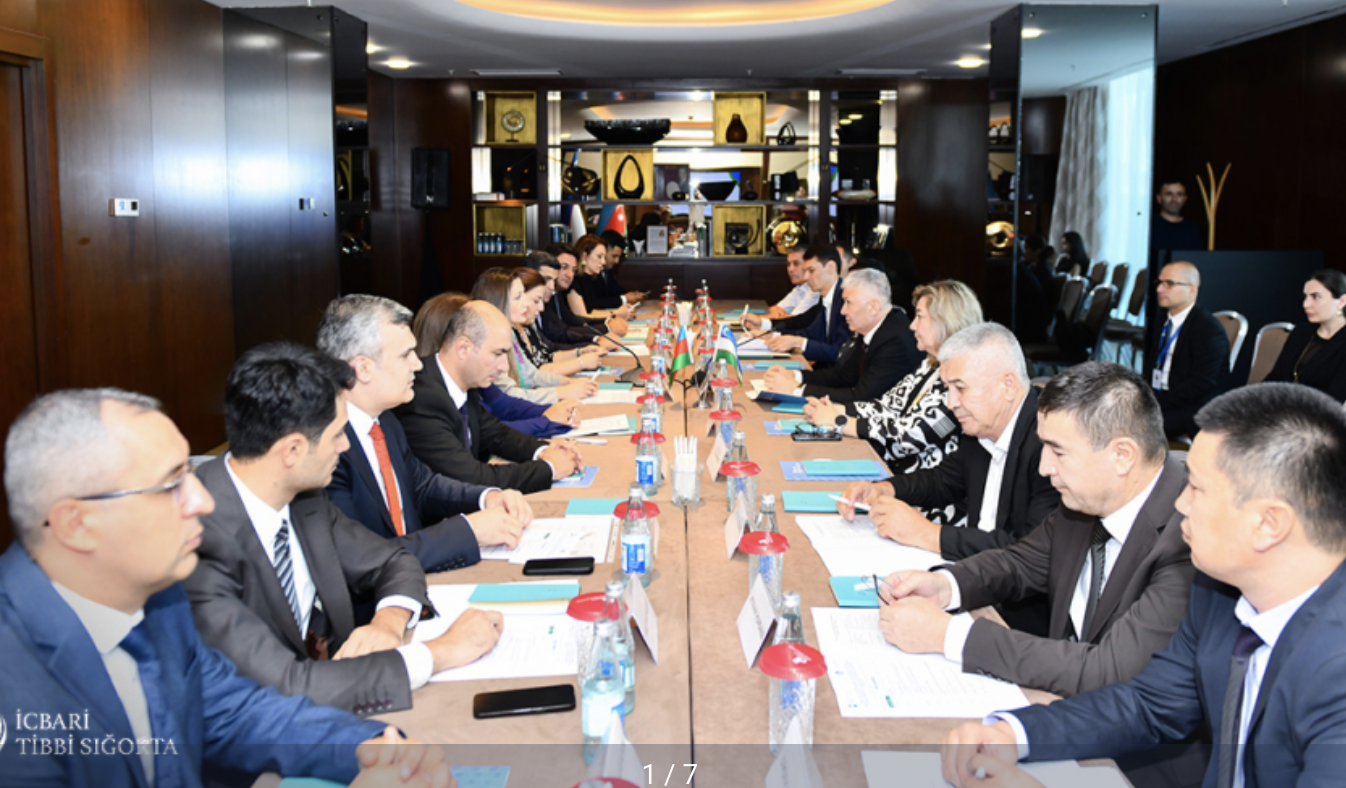Azerbaijan enjoyed dynamic economic growth after independence. Yet, in the past in the 1990s and during 2000-2010, budgetary allocations for health in Azerbaijan were lower than elsewhere in the Commonwealth of Independent States. In the 1990s and the 2000s out-of-pocket (OOP) payments accounted for the largest share of the country’s total health expenditure.1 From 2014 through 2016, health expenditure per capita dropped sharply due to reduced budget revenues from oil. In 2019, the estimated universal health service coverage index in the country was 65.3, while OOP spending was at 68% of current health expenditure.1 2
Azerbaijan’s compulsory health insurance model in brief
Compulsory health insurance ensures that citizens of Azerbaijan, temporary and permanent foreign residents of Azerbaijan and stateless persons all have access to a comprehensive package of inpatient and outpatient services. Voluntary affiliation is allowed for those not eligible for mandatory participation.6 Significant investments have been made to promote and enhance the impact of compulsory health insurance through information and communication technologies and the integration of digital health services and tools.3
Azerbaijan has unique health reform design features. Medical services are provided to citizens across public and private health care providers. Public health care organizations are subordinate to the Azerbaijani Management Union of Medical Territorial Units (locally called TƏBIB) – a public legal entity under the SAMHI. This entity governs all health care providers participating in the national insurance system and coordinates the activities of private providers.
- Ibrahimov F., Ibrahimova A., Kehler J., and Richardson E. Azerbaijan: health system review. Copenhagen: WHO Regional Office for Europe, 2010, accessed 11 February 2022. [↩][↩][↩]
- Global Health Expenditure Database. Geneva: World Health Organization, accessed 11 February 2022. [↩]
- P4H Network (2022). Country Briefs: Social Health Protection and Health Financing Reforms. Briefing Note for Azerbaijan, prepared by the International Labour Organization, accessed on February 21, 2023 [↩][↩][↩]
- Novruzov N. Informal economy in the world and in Azerbaijan. KANT Social Sciences & Humanities. 2021:30–38. doi: 10.24923/2305-8757.2021-5.3 [↩]
- Bayramov B., Hasanov R., and Gasimova N. Perspectives on the Analysis and Development of Social Policies in Azerbaijan. In: Tajmazinani AA, editor. Social Policy in the Islamic World. Cham: Springer International Publishing, 2021: 225–240 [↩]
- Jafarova LA., Mammadov VG., and Mammadova LE., Azerbaijan’s Healthcare Legislation: Major Developments Amid the COVID-19 Pandemic. Eur J Health Law. 2021: 1–18. doi: 10.1163/15718093-bja10057 [↩]



